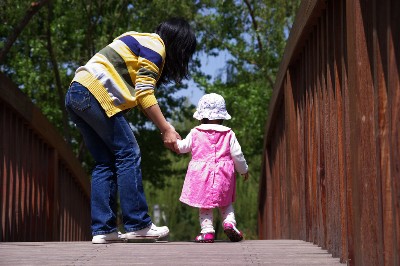
But eventually, the four children needed more than their mother could provide. They were growing up, and there wasn't enough food to go around.Mary says that her mother "had to place me in a home where I would work for my keep. And I would come home every other Sunday. And this is how we tried to survive."
但是,母親所提供的并不能滿足四個孩子的需求。她們在成長,食物不夠吃的了。瑪麗說,她媽媽“只好把我安置在一戶人家工作,讓我自己養活自己。我每兩個星期,才有一個星期天可以回家。我們就是這樣生活下來的。”
"How long did you work for that family?" Charles asks.
查爾斯問,“你在那戶人家干了多久?”
"Two years, 'til I was 16," Mary says.
瑪麗說,“兩年,一直干到我16歲。”
And she has a vivid memory of her last day on the job.
對于這份工作的最后一天,她仍記憶猶新。
"Mama worked across the street from there, washing clothes. And it was a hot summer day, and she was walking down the street. And I ran to the front door and called her in, to visit with her."
“媽媽在街對面洗衣服。那天酷暑難耐,她沿著街道朝我走來。我跑到前門,讓她進來,跟她閑談。”
The two talked — but the visit didn't go down well with Mary's boss.
我們兩人聊了下,但這次拜訪讓瑪麗的雇主不開心。
After Eva left, Mary says, "Mrs. Blaisdell said to me, 'Don't ever let the help come in the front door!'
伊娃走后,瑪麗說,“布萊斯德爾夫人對我說,‘以后別讓幫手進家門!’
"And I said, 'Well, I don't want to work here if my mother can't come in the front door.'
“我說,‘如果不允許我媽媽進這個門,我也不想在這兒干了。’
"And I packed my little suitcase and came home. I can remember that so well."
“于是,我整理了我的小行李箱,回家來了。這一切現在還歷歷在目。”











